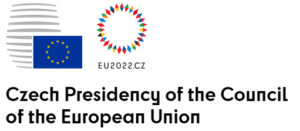Specialist healthcare providers in the UK are part of a Europe-wide network which aims to improve the understanding and management of rare and complex epilepsies. If UK participation is discontinued following Brexit, patients and clinicians on both sides will be denied access to leading expertise and cutting-edge new treatments – with likely poorer outcomes.
Epilepsy is a condition where an individual is prone to recurrent epileptic seizures. There are many different causes. Two-thirds of individuals with epilepsy respond to first-line medication (antiepileptic drugs) or enter into spontaneous remission with time. But a third continue with seizures despite existing treatments.
Advances in structural brain imaging, as well as genetic and metabolic diagnostics, have determined an increasing number of causes, resulting in the description of more than 130 rare diseases.
With an understanding of cause, treatments can be more targeted. The relative prevalence of each disease means a coordinated approach is required across key centres of expertise at an international level.
EpiCARE, a European Reference Network, aims to improve the understanding and management of these rare and complex epilepsies through the use of e-tools and expert discussion. This enables complex diagnostic and therapeutic interventions in a wider number of patients across Europe.
It is currently a network of 28 centres across 13 countries, which fulfil proposed operational criteria and have all received endorsement as specialist healthcare providers within their member state. There is also active participation of individuals representing disease specific organisations.
Should the participation of UK centres not be possible following Brexit, patients with rare and complex epilepsies in the UK will be denied access to European expertise and participation in the development of new treatments, with likely poorer outcomes.
This cannot be done at country level, in view of the rarity of the diseases. The UK leads on a number of aspects of epilepsy patient diagnostics and novel treatments, but trialling of such can only be done through the use of multiple centres at European level.
How it works
EpiCARE is an extension of the pilot European Reference Network e-pilepsy, a network developed to increase awareness and availability of epilepsy surgery across Europe. This network continues as the surgical treatment arm of EpiCARE.
The objectives are:
1. To improve accessibility of detailed diagnostics to individuals of all ages with rare and complex epilepsies across Europe, including clinical evaluation and investigation.
2. To develop treatment protocols and monitor standardised outcomes of rare and complex epilepsies.
3. To improve awareness and accessibility to protocols for physicians and individuals with rare and complex epilepsies across Europe for treatment.
4. To enhance educational activities and training opportunities by interchange across the network.
5. To enhance opportunities for registries and collaborative research for the benefit of individuals with rare and complex epilepsies across Europe.
We are doing this through the development of a series of vertical and horizontal work packages. We aim to improve access and understanding through online tools to improve laboratory diagnostics, brain imaging, neurophysiology, neuropsychology and neuropathology evaluation for this group if diseases.
We will also enhance therapeutics through consideration of novel therapies, continuation of the e-pilepsy network, a neonatal seizure network and dietary therapies. Underpinning this, there will be ongoing case discussion through an online platform, for which a clear care pathway for referral is being developed.
Access to new treatments
Such a network will give patients access to new treatments as they develop. An example is seen in Dravet syndrome, a rare early onset epilepsy (prevalence 0.4/10000) with poor prognosis for seizure control and neurodevelopmental outcome.
A European registry has been initiated and new cohort-relevant outcomes measures developed. Trials of new treatments have been completed, but the registry will enable knowledge of the positioning of these patients around Europe, and give them access to participate in natural history and outcome studies.
EpiCARE is currently led and coordinated by Great Ormond Street Hospital, with the participation of a further three UK centres (National Hospital for Neurology and Neurosurgery Queen Square, Oxford, and Glasgow).
Professor Helen Cross is the Prince of Wales’s chair of childhood epilepsy, coordinator of EpiCARE and head of developmental neurosciences Unit at the UCL Great Ormond Street Institute of Child Health.
Find out more
The Brexit Health Alliance has warned that patients could suffer if a ‘worst case scenario’ Brexit ended healthcare arrangements between the UK and EU. The alliance is calling on Brexit negotiators on both sides to take steps to ensure this does not happen.
Discover more in the Brexit Health Alliance’s new briefing Maintaining reciprocal healthcare for patients after Brexit.
Join the conversation on Twitter #BrexitHealthAliance



